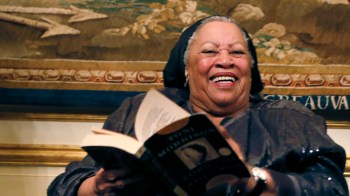Paying a high price for a Pulitzer Prize
TEXT OF STORY
Kai Ryssdal: Today’s a big day for the newspaper industry. The Pulitzer Prizes were announced this afternoon. And for the first time this year the 92-year-old Pulitzer board gave a nod to new media. The rules were expanded to include organizations that publish only online.
No Web sites won in the end, but we had another thought. Given the newspaper industry’s budget woes, due in no small part to the rise of the Web, do the Pulitzers matter as much as they used to? Marketplace’s Jeremy Hobson has that story from New York.
JEREMY HOBSON: Call the Pulitzer Prize office at Columbia University and administrator Sig Gissler will tell you that things aren’t so bad.
SIG GISSLER: I haven’t taken a ruler to measure the length of entries, but they’re still very substantial multi-part series. In fact, the watchdog function of journalism is very evident.
As for the number of entries this year, he says:
GISSLER: Down a little bit from last year but just by a small amount.
But ask the people who know what it takes to win a Pulitzer Prize and a different story emerges. Tom Fiedler — who’s now the dean at Boston University’s College of Communication — won two, while reporting for the Miami Herald. He later became the paper’s executive editor. So he knows first hand how expensive it is to chase a Pulitzer.
TOM FIEDLER: It’s such a gamble for lack of a better word that I think a lot of newspapers or those running those papers say, “We just can’t afford to take it.”
Fiedler says being a winner can help readership, sort of like being “the toothpaste dentists’ recommend” can help toothpaste sales. Still, some editors are put off by the steep price tag.
FIEDLER: It could well get close to — and I’m not exaggerating — a million dollars. I know we spent $800,000 on one investigation looking into what happened after the 2000 presidential election.
Photographer Lucian Perkins got out while the getting was good. He took a buyout from the Washington Post three years ago, after winning two Pulitzer Prizes for the paper. He says for many media organizations, aiming for a Pulitzer has taken a back seat to simply feeding the news beast.
LUCIAN Perkins: They’re not willing to have one reporter spend two weeks or a month investigating a really important story for the community when that reporter could go out every day and produce a mediocre story and be published 8 to 10 times and fill up the newspaper.
Hobson: Do you think that you could have won your Pulitzer Prizes in this economic environment?
Perkins: I think it’d be very difficult.
So what’s Perkins doing now? He’s teamed up with eight other photographers to investigate, as he puts it, the stories in America that newspapers are no longer willing to cover.
In New York, I’m Jeremy Hobson for Marketplace.
There’s a lot happening in the world. Through it all, Marketplace is here for you.
You rely on Marketplace to break down the world’s events and tell you how it affects you in a fact-based, approachable way. We rely on your financial support to keep making that possible.
Your donation today powers the independent journalism that you rely on. For just $5/month, you can help sustain Marketplace so we can keep reporting on the things that matter to you.


















